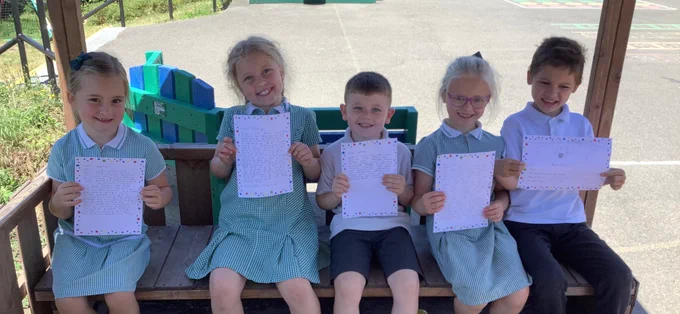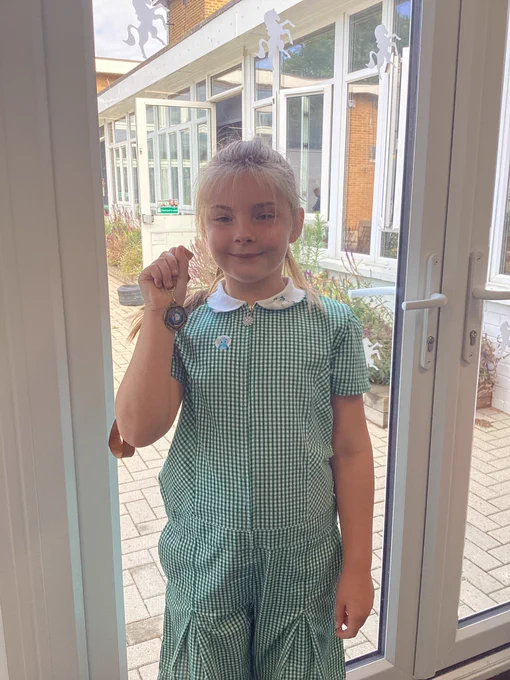Download our FREE smartphone app today!
Geography
Geography is the study of places. It explores the relationships between the world and its people. It studies the location of the physical and human features of the earth and the processes, systems and inter-relationships that create and influence them. It examines how people affect, manage and sustain their environment.
Geographical enquiry helps children to learn about their immediate surroundings, the broader world and how the environment can affect their lives and determine decision-making. The study of geography helps to develop a sense of identity and promotes responsible citizenship.
We aim to ensure children:
- To build a geographical curriculum that develops learning and results in the acquisition of knowledge of their world around them so that they know more, remember more and understand more.
- To build a geographical curriculum that endorses the importance for outdoor learning to build a curiosity for learning to help them to know more, remember more and understand more.
Curriculum Intent, Implementation & Impact
Intent:
- To build a geographical curriculum that develops learning and results in the acquisition of knowledge of their world around them so that they know more, remember more and understand more. This is through the use of:
· planning with the National Curriculum
· progression grid
· subject specific content
· appropriate connections to other curriculum areas
- To build a geographical curriculum that endorses the importance for outdoor learning to build a curiosity for learning to help them to know more, remember more and understand more.
Implementation:
Knowledge Organisers and Learning Walls:
Children have access to key language and meanings in order to understand and readily apply to their written, mathematical and verbal communication of their skills, in a purposeful context. This promotes connections to be made across all foundation subjects where applicable. These can be integrated in the English learning wall.
Key Vocabulary:
The promotion of a language rich Geography curriculum is essential to the successful acquisition of knowledge and understanding in Geography.
Independent Learning:
In Geography children are encouraged to enquire about their topic of interest and develop their independence when locating places, describing places and exploring the outdoors.
Children will access resources to acquire learning through atlases, text books, maps, digital technology and photographs:
Children will use a range of secondary resources to develop their knowledge and understanding that is integral to their learning.
Enhancement:
In order to enhance the curriculum for geography children access the local area at least once a term; by making connections through all the different curriculum areas and have access to a local map. With this map they navigate and apply their geographical skills when accessing the local area.
Educational Visits to enhance their Cultural Capital:
Where applicable links to geography will be made to develop the children’s topical learning.
Outdoor Learning opportunities with the curriculum:
Teaching and Learning should plan for outdoor learning opportunities within geography lessons termly. This may be using the school grounds, local area or wider community to apply and explore their subject specific task.
Children will access their local environment to get a hands-on experience in their learning:
This may not be geography led but is an expectation that all pupils visit their local area at least once a term. Children will become more aware of their local environment and as they progress through their geographical education and use a map specific for their areas of enquiry.
Educational Visits to enhance their cultural capital:
Where applicable links to geography will be made to develop the children’s topical learning.
British Values and PSHE:
Children will learn and revisit the importance of our world and how it should be treated through a range of cultural capital activities and experiences.
Impact:
· Children will achieve age related expectations in Geography at the end of their cohort year.
· Children will retain knowledge that is pertinent to geography with a real-life context.
· Children will understand how geography ‘happens’ in their local area.
· Children will have a good understanding about the world around them and how it has been shaped.
· Children will know more, remember more and understand more.
· The pupil voice will represent an understanding of what geography is and how they have applied this learning in a given context as part of a highlight task.
· Children will achieve age related expectations in Geography at the end of their cohort year.
· Children will retain knowledge that is pertinent to geography with a real life context.
· Children will understand how geography ‘happens’ in their local area.
· Children will begin to understand their wider world and the implications that we as citizens have on it.
· Children will work collaboratively to solve problems and explain the processes that they have taken/observed within a real-life context.
· Children will act as good citizens within their local community.


























